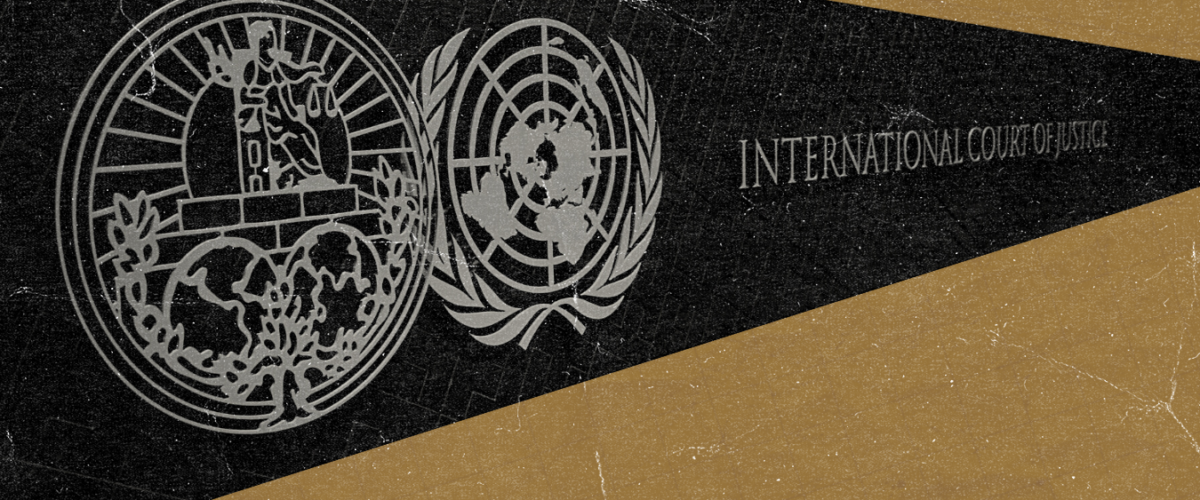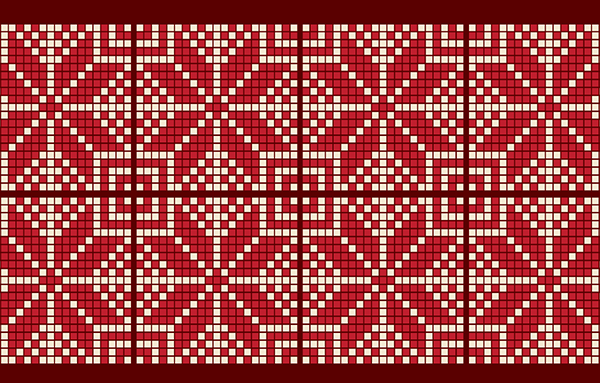On 26th January, the International Court of Justice (‘Court’) pronounced its order on provisional measures in the proceedings instituted by South Africa against Israel under the Genocide Convention (‘Order’). The Court heard arguments by both parties on 11th and 12th January. A summary of South Africa’s arguments is available here, and a summary of Israel’s arguments is available here.
The purpose of indicating provisional measures is to preserve the respective rights claimed by the parties in the case, pending the decision on merits (para 35). The Court is not required to issue any findings on the merits of the dispute at this stage. It can indicate provisional measures if the Court finds that it has prima facie jurisdiction, the rights sought to be protected are at least plausible and have a link with the measures requested, and there is an urgent risk of irreparable prejudice to these rights.
The Court decided in favour of South Africa and in a near-unanimous Order, indicated six provisional measures against Israel. Judges Xue, Bhandari, and Nolte appended declarations to the Order. Judge ad hoc Barak wrote a Separate Opinion, voting in favour only of the provisional measures which direct Israel to punish acts of public incitement and enable the provision of humanitarian aid to Palestinians in Gaza. Judge Sebutinde wrote a Dissenting Opinion and voted against all six provisional measures indicated in the Order.
Prima Facie jurisdiction and South Africa’s standing
The Court has prima facie jurisdiction if a dispute exists between the parties, and this dispute can be said to fall within the scope of the Genocide Convention. Additionally, to request provisional measures, South Africa should have standing to institute proceedings against Israel. (para 15)
The Court observed that in various multilateral and bilateral settings, South Africa expressed the view that Israel’s actions in Gaza amounted to genocide. Statements to this effect were made at the 10th emergency special session of the UN General Assembly on 12 December 2023, and in South Africa’s Note Verbale to the Embassy of Israel on 21 December 2023. Israel, in turn, dismissed the accusations of genocide in a document published by its Ministry of Foreign Affairs on 6 December 2023. This document was updated and reproduced on the website of the Israel Defense Forces on 15 December 2023. Accordingly, the Court found that both parties held opposite views as to whether Israel’s acts and omissions in Gaza are genocidal or not, which is sufficient to establish the prima facie existence of a dispute. (para 30)
As to whether this dispute was within the scope of the Genocide Convention, the Court noted that it was not required to decide whether Israel violated the Convention at the stage of indicating provisional measures. It is enough for the Court to find that the acts complained of appear to be capable of falling under the Convention. As South Africa has claimed that Israel is responsible for committing genocide in Gaza, the Court found that this standard was met. (para 33-34)
The Court noted that Israel did not seriously challenge South Africa’s standing to institute proceedings under the Genocide Convention. In any case, the obligations under the Convention are erga omnes partes, that is, every state has a common interest in ensuring compliance with these obligations. This common interest means that any state party to the Convention is entitled to initiate proceedings for alleged violations (para 33).
Rights whose protection is sought and the link with measures requested
The Court observed that at the stage of indicating provisional measures, it need only find that the rights sought to be protected by South Africa are plausible and that these rights are related to the provisional measures sought. (para 36)
In its application, South Africa sought to protect the rights of Palestinians in Gaza against genocidal acts. According to the Court, Palestinians in Gaza constitute a distinct national, ethnical, racial, or religious group, and as such, were a group protected under Art. II of the Genocide Convention (para 45). Relying on statements made by UN officials, the WHO, and the UNRWA, the Court observed that Israel’s military activities after 7 October 2023 had resulted in widespread death, destruction, and displacement of Palestinians in Gaza. As to the element of specific intent necessary for acts to constitute genocide under the Convention, the Court relied on statements made by Israel’s defence minister, their President, and the Minister of Energy and Infrastructure, to note that the crisis in Gaza was aggravated by the use of dehumanizing language. These facts were sufficient, in the Court’s opinion, to find that at least some of the rights for which South Africa is seeking protection are plausible. (para 54)
South Africa claimed that the requested provisional measures were aimed at ensuring Israel’s compliance with its obligations under the Genocide Convention, and also at ensuring that the integrity of the Court’s proceedings can be maintained. The Court noted that these measures were aimed at preserving the rights of Palestinians in Gaza against genocidal acts, which it had already found to be plausible. (para 59)
Risk of irreparable prejudice and urgency
The Court recalled that it can indicate provisional measures when irreparable prejudice can be caused to the rights sought. But this power to indicate provisional measures can only be exercised if there is urgency; in that there is a real and imminent risk that the irreparable prejudice will be caused before the Court gives its final decision. (para 60-61)
The Genocide Convention was adopted for a humanitarian purpose, with the objective of safeguarding the very existence of certain human groups. In view of the fundamental values sought to be protected by the Genocide Convention, the Court found that any prejudice to the right of Palestinians in Gaza to be protected from genocidal acts may cause irreparable harm (para 66). The Court noted that the civilian population in Gaza is extremely vulnerable, and that Israel’s military operation after 7 October 2023 resulted in widespread death and destruction of vital infrastructure, as well as displacement on a massive scale. By Israel’s own admission in a statement made by Prime Minister Benjamin Netanyahu on 18 January 2024, the war is likely to take many more long months (para 70). In these circumstances, the Court found that the situation in Gaza is at serious risk of deteriorating before the Court gives its final judgement (para 72). The Court decided that measures taken by Israel to address and alleviate conditions in Gaza, while laudable, were not sufficient to remove this risk of irreparable prejudice. (para 73)
Conclusion and Provisional Measures
Having found that there is an urgent risk of irreparable prejudice to rights sought to be protected by South Africa, the Court indicated certain important provisional measures in a near-unanimous opinion. The Court directed Israel to take all measures within its powers to prevent the commission of genocidal acts, to punish direct and public incitement to commit genocide, to take effective measures to enable the provision of urgently needed basic services and humanitarian assistance Gaza, to preserve evidence related to allegations of genocidal acts, and to submit a compliance report to the Court within one month. (paras 78 – 82)
In addition, the Court emphasised that all parties to the conflict in Gaza are bound by international humanitarian law, and called for the immediate and unconditional release of hostages abducted by Hamas on 7 October 2023.
Declarations
Judge Xue penned a declaration to explain why she agreed with the South Africa’s standing to institute proceedings against Israel for breach of its obligations under the Genocide Convention. Highlighting the tragic consequences of the hostilities on civilians in Gaza, Judge Xue opined that the gravity of the humanitarian disaster in Gaza threatens the very existence of people in Gaza and challenges the most elementary principles of morality and humanity. Judge Xue specifically noted that the case of Palestinians in Gaza is the very type of situation where the court should recognise the erga omnes partes nature of obligations under the Convention. (para 4, Judge Xue Declaration)
In his declaration, Judge Bhandari observed that other fields of international law, including international humanitarian law, continue to apply to the armed conflict in Gaza. He reiterated the position that a decision on provisional measures would not decide the merits of South Africa’s actual claims. Finally, he exhorted all parties to the conflict to halt hostilities, and unconditionally release the remaining hostages captured on 7 October 2023.
Judge Nolte recalled that South Africa approached the Court under the Genocide Convention, and in doing so, limited the scope of the proceedings only to a possible claim of genocide. Nevertheless, both Israel and persons associated with Hamas remain legally responsible for any possible breaches of other rules of international law, including international humanitarian law. He asserted that at the stage of indicating provisional measures, the Court need not address questions relating to the right to self-defence, the right of self-determination of peoples, or regarding the status of disputed territories.
Judge Nolte noted that the main opinion did not analyse the plausibility of genocidal intent, which is an essential characteristic of the crime of genocide, distinguishing it from other international crimes. In his opinion, South Africa could not plausibly show that the military operations undertaken by Israel in Gaza are being pursued with genocidal intent. The measures taken by Israel to evacuate civilians and enable the delivery of humanitarian aid, in fact, made it at least plausible that the military operation was not conducted with genocidal intent.
Even though he did not find that genocidal intent was plausible, Judge Nolte voted in favour of the measures indicated by the Court. He clarified that this was because of South Africa’s claim that certain statements by Israeli state officials give rise to a real and imminent risk of irreparable prejudice to Palestinian rights. As the inflammatory parts of these statements were echoed by members of Israeli armed forces, Judge Nolte observed that the statements may contribute to the risk of genocidal acts.
Separate opinion of Judge ad hoc Barak
Judge Barak doubted that South Africa brought the dispute to the Court in good faith. After sending its Note Verbale to Israel on 21 December 2023, South Africa did not accept Israel’s offer to engage in consultations before instituting proceedings before the Court. This denied Israel a reasonable opportunity to engage in meaningful dialogue on how to address the situation in Gaza. He opined that the correct legal framework to analyse the situation in Gaza is International Humanitarian Law, and not the Genocide Convention. Judge Barak pointed out that the Order did not adequately address the events of 7 October 2023, which formed the immediate context in which South Africa’s request was brought to the Court.
Judge Barak strongly disagreed with the Court’s approach regarding plausibility and specific intent to commit genocide. The threshold for specific intent required to establish the crime of genocide is very high. While this high threshold need not be met at the preliminary stage of indicating provisional measures, Judge Barak asserted that at least some proof of intent is necessary to make a claim of genocide plausible. South Africa had not produced sufficient evidence to show that this intent was even plausible. Their figures for Palestinian deaths and damage to infrastructure come from the Ministry of Health of Gaza, which is unreliable because it is controlled by Hamas. Statements made by the President of Israel and the Minister of Defence are insufficient to infer plausible intent, as both authorities have issued several statements clarifying that Israel’s intent is the destruction of Hamas, not Palestinians in Gaza. Judge Barak opined that applying the Genocide Convention in this case would undermine the integrity of the Convention and dilute the concept of genocide.
As Judge Barak was not convinced that genocidal intent was plausible, he voted against provisional measures which directed Israel to prevent the commission of genocidal acts. Judge Barak also voted against provisional measures regarding preservation of evidence and submitting a compliance report to the Court. However, Judge Barak voted in favour of the provisional measures which direct Israel to punish acts of public incitement and enable the provision of humanitarian aid to Palestinians in Gaza.
Dissenting opinion of Judge Sebutinde
Judge Sebutinde took the view that the dispute between Israel and the people of Palestine is not a legal dispute to be settled by the Court, for it is political, territorial, and ideological.
Judge Sebutinde did not find any indicators of genocidal intent on part of Israel, even on a prima facie basis. She pointed out that the hostilities in Gaza were not initiated by Israel, but rather, by Hamas, who attacked Israel on 7 October 2023. This attack triggered a military operation in response, in Israel’s defence. South Africa’s allegations of genocidal intent are negated by Israel’s targeted attacks against legitimate military targets in Gaza, the mitigation of civilian harm by issuing warnings, and by the facilitation of humanitarian assistance. Although Israel is expected to conduct its military operations in accordance with international humanitarian law, Judge Sebutinde recalled that violations of humanitarian law cannot be the subject of proceedings under the Genocide Convention. Judge Sebutinde asserted that South Africa took statements of Israeli state officials out of context. Read contextually, these statements relate to the destruction of Hamas, and not the Palestinian people.
Having found no genocidal intent in Israel’s conduct, Judge Sebutinde systematically rejected the link between the rights asserted by South Africa and the provisional measures requested. South Africa’s request would require Israel to unilaterally cease all military operations in Gaza, while Hamas continued their offensive. Any provisional measures in this regard would impinge upon Israel’s right to defend itself. Other provisional measures requested by South Africa merely reiterate Israel’s obligations under International Humanitarian Law, and as such, do not concern their obligations under the Genocide Convention. Judge Sebutinde concluded that the provisional measures indicated by the Court were not warranted.
Judge Sebutinde expressed grave concern for the hostages in custody of Hamas and other armed groups, following the attacks of 7 October 2023, and joined the Court in calling for their immediate and unconditional release. Additionally, Judge Sebutinde requested South Africa to persuade Hamas to release the remaining hostages as a gesture of goodwill, in light of Israel’s claims that they enjoy a cordial relationship with the leadership of Hamas.





